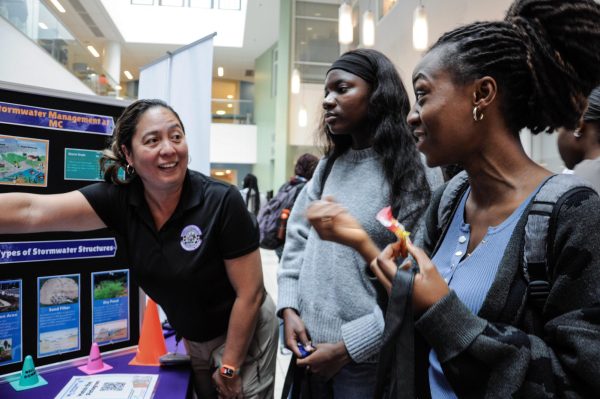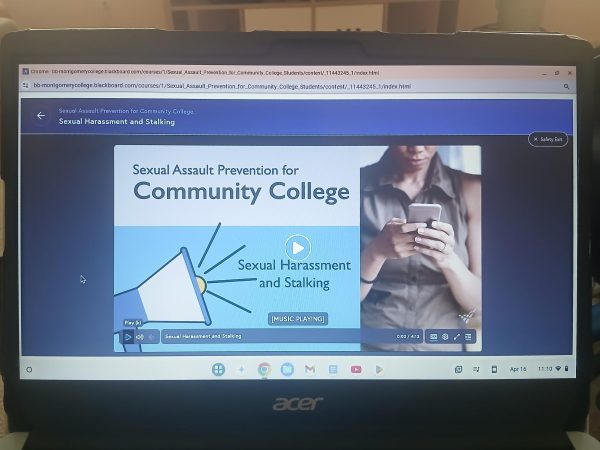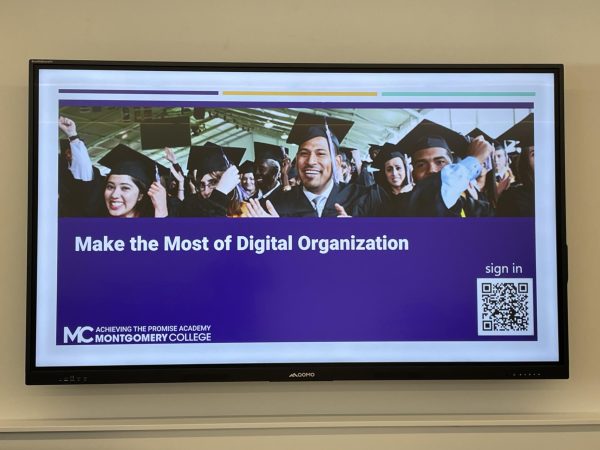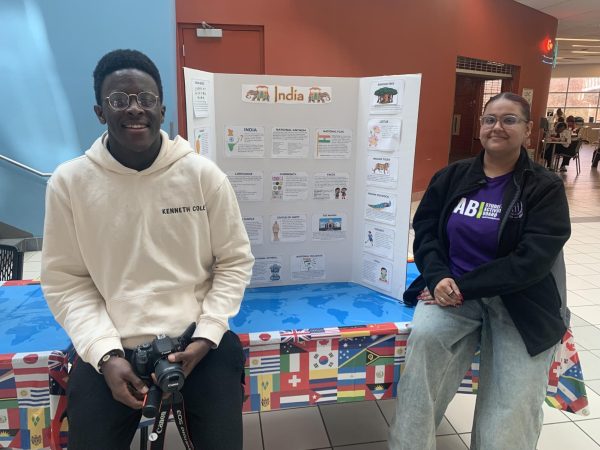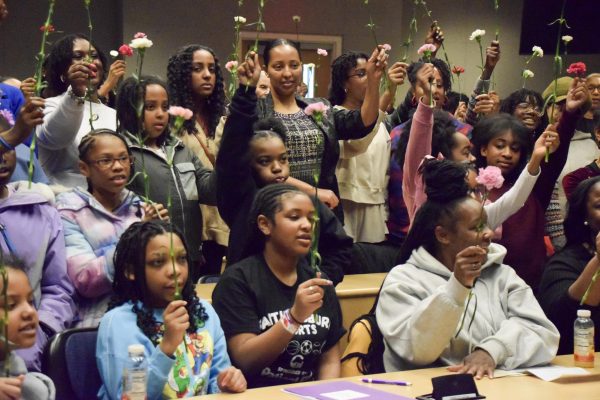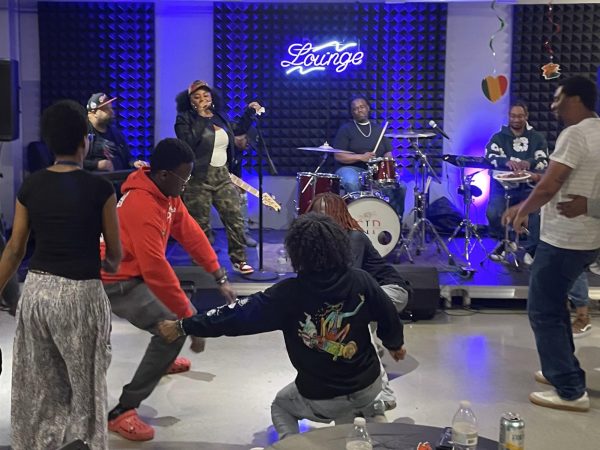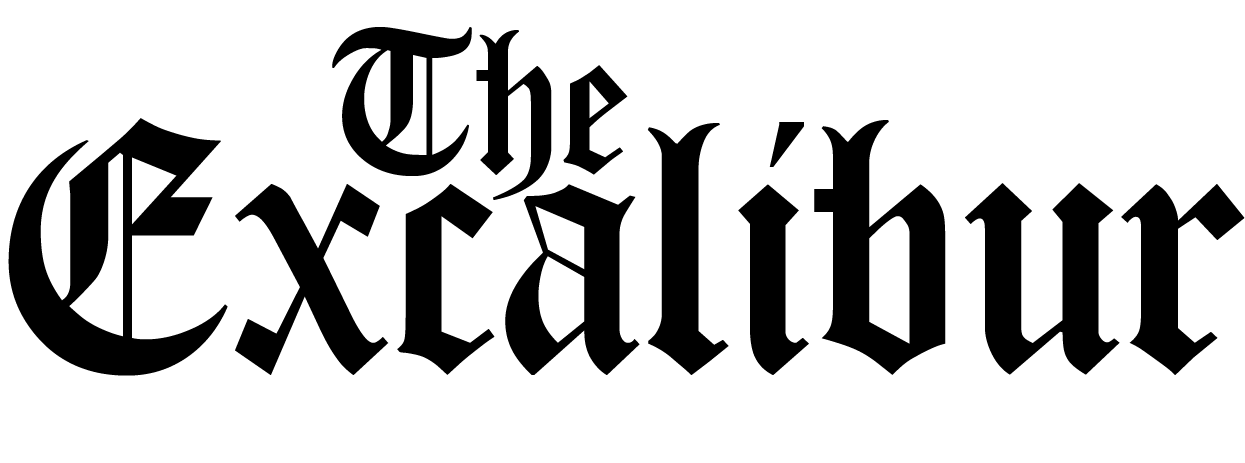Online Panel Discussion on Free Speech and Hate Speech Draws Many Attendees, Vigorous Debate
College administrators debate the line between free expression and hate in a well-attended online panel
A Montgomery College panel discussion of the line between free speech and hate speech drew many watchers and participants last week, as students and professors asked and answered questions concerning the issues of freedom of expression, incitement to violence, college policy, and other subjects.
The event, held September 10th by Montgomery College’s Office of Equity and Inclusion, was titled The Fine Line Between Free Speech and Hate Speech: Communicating Effectively Without Prejudice, and featured a panel composed of MC administrative staff. Each panel member focused on a different aspect of the issues of free speech and hate speech.
Santo Scrimenti, the director of employee and labor relations at Montgomery College and a qualified lawyer, talked at length about the legal history of free speech and hate speech. According to Mr. Scrimenti, the line between free speech and hate speech in the United States has long been a contentious issue of legal judgment, and courts have at times protected certain varieties of hate speech from legal penalties. He pointed to cases concerning anti-flag-burning laws in states such as Texas, which were ultimately struck down as unconstitutional.
Mr. Scrimenti said that free speech becomes legally unacceptable hate speech when the speech in question incites people to unlawful action, in particular violent acts. He also acknowledged that, with the advent of social media, these issues constitute “an evolving area of the law” which is likely to change with future court decisions.
George Montgomery, the coordinator of MC’s Student Conduct Program, gave a talk on the college policies on free speech and hate speech. Focusing on the Student Code of Conduct that all students sign when they become MC students, he explained that the Code of Conduct may apply to off-campus conduct and the online sphere, including social media posts.
For instance, if the college becomes aware that a student makes hateful comments on a private social media account, those comments may be grounds for a college investigation and penalties against the student in question, according to Mr. Montgomery.
Dr. Rachel Bonaparte, director of MC’s Part-Time Faculty Institute, who studies social media and its impact, approached the question of free speech and hate speech from the standpoint of communications. After summarizing techniques for effective communication and the importance of emotional intelligence when engaging in dialog, she laid out her view that free speech becomes hate speech when communication is “no longer being used for unity and understanding.”
Many watchers participated in the discussion once the panel was opened to questions. Many of the questions focused on recent political events and national controversies.
In response to one question concerning which views might be considered unacceptable by the college, Mr. Montgomery explained that people’s views “don’t dictate whether we take action,” and that the college administration is mindful not to limit free speech whenever possible. According to Mr. Montgomery, “We can’t restrict speech…unless it causes a significant disruption on campus.”
Answering another question, Mr. Scrimenti adopted a similar position. When asked about statements commonly viewed as ‘dogwhistling’ racism, such as “all lives matter” or “white lives matter,” Mr. Scrimenti said that they would “likely not” meet the legal definition of prohobiited hate speech, owing to the lack of an obvious incitement to violence.
However, Mr. Scrimenti said, Montgomery College “has an obligation to make sure that learning takes place” on its campus, and that the college could reasonably be expected to take action against students who made these statements, depending on the context, despite them not being legally actionable.
The event was attended by over a hundred members of the MC community.
Harry is studying for an associate's degree in civil engineering at Montgomery College. He takes a keen interest in technology, the environment and international politics. Before attending Montgomery College, he spent three years working as a middle-grade English teacher. In his spare time, he loves cycling and playing soccer, and his main life goal is to own at least two dogs.




